As of this posting, I have 1,018 Twitter followers.
Which is just about perfect.
I don’t want to have too many Twitter followers, and neither should you.
😈
Why, you ask?
One major Tweeter said it’s everyone’s dream to have 100,000 followers.
I could add, “100k real followers you don’t have to follow back”, but I think you’ve figured that part out already.
The reason why 1,018 followers is “perfect”?
Twitter is the Wild, Wild West of social media.
Unregulated feed, anything goes.
“Anything” includes the widespread selling of bot “Twitter followers”, unchecked by Twitter.
“Buy 10k followers” ads permeate every user’s feed.
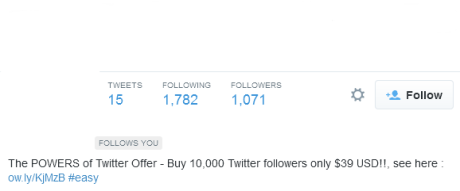
Here is where the big problem arises.
If you should happen to hit 10k real (non-purchased) followers, and you are not a “household-name” grade celebrity, everyone will think you bought your way to that number.
Not only has “Buy 10k followers” negated any importance the number of Twitter followers may have once had, any non-celebrity with over 10k followers is automatically suspect of buying them. Which is why you shouldn’t!
I hope to stay under 10k followers for a long, long time.
Unless I get a movie TV deal… 😉
-
——————————————
Search
-
——————————————
This Blog’s Post Archives:
- November 2019
- October 2019
- September 2019
- August 2019
- July 2019
- June 2019
- October 2018
- October 2017
- August 2017
- February 2017
- September 2016
- March 2016
- February 2016
- January 2016
- November 2015
- October 2015
- September 2015
- August 2015
- July 2015
- June 2015
- May 2015
- April 2015
- March 2015
- February 2015
- January 2015
- December 2014
- November 2014
- October 2014
- September 2014
- August 2014
- July 2014
- June 2014
- May 2014
- April 2014
- March 2014
- February 2014
- January 2014
- December 2013
- November 2013
- October 2013
- September 2013
- August 2013
- July 2013
- June 2013
- May 2013
- April 2013
- March 2013
- February 2013
- January 2013
- December 2012
- November 2012
- October 2012
- September 2012
- August 2012
- July 2012
- June 2012
- May 2012
- April 2012
- March 2012
- February 2012
- January 2012
- December 2011
- November 2011
- October 2011
- September 2011
- August 2011
- July 2011
- June 2011
- May 2011
- April 2011
- March 2011
- February 2011
- December 2010
- October 2010

Too many Twitter followers & how to avoid this problem
The Social Network Kool-Aid Acid Test, Part Two: Do Tweets Dream Of Retweeting Sheep?
Last night, I scrolled through my blog’s archives and read this. My post from February 26, 2011, “The Social Network Kool-Aid Acid Test.”
What struck me the most is how little the fundamental issues have really changed since then.
Back then, in 2011, the first novel of my trilogy was still a WIP, and I didn’t have to bother with all this social network silliness. Sigh, the “good old days”, when I could just go home and write uninterrupted. 😉
Of course, once the first work was done and I was weighing my publisher offers, it was time to outreach to the world at large. Facebook, for all its relentless ‘time-suck’, has been a blessing, connecting me with prominent independent creative visionaries like Kristen Lamb, T.C. McKinney and Joel Eisenberg.
Even now, my contacts on Facebook are paving the way for ever-greater successes in my (and their) future.
Well, okay, if J.K. Rowling can “roll the trolls” on Twitter, I should have no problem with a reasonable comeback Tweet here and there.
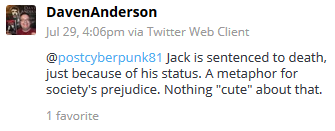
FYI, I’m not saying Jeremy Light was being a troll there, but if he had actually bothered to read “Vampire Syndrome” before commenting about it, he would have found out that Jack is in fact a much wiser character than Bella Swan. One of my main messages is that high IQ, quick wit and cunning do not equal wisdom. Edward Cullen and Bella Swan would both have higher IQ’s than Jack in technical terms, but when it comes down to taking wise actions in life, Jack has more wisdom than Edward and Bella combined.
Even if Jeremy had read only as far as the end of Chapter Seven, by that time Jack has been pursued by cops, pepper-sprayed, jumped out the window of a moving transit bus, chased by a Dodge Charger traveling 80+ mph, attacked by a dog (which he then bit in self-defense!), and bullied by a gang of teenagers. “Cute?”
Jeremy’s now-deleted comment was not really a case of trolling to me, but his Tweet shared one aspect I see in all too many troll Tweets: The tendency to dismiss ideas out of hand, without having any real insight or knowledge into how they are in practice. Since this also happens in other forms of social media…
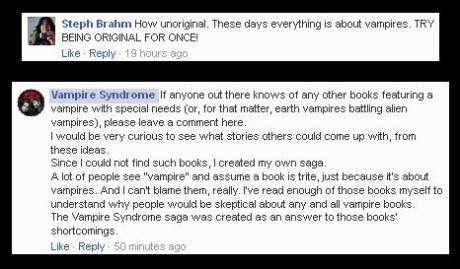
…we can’t lay all the blame for “trolls” or ‘the increasing tendency to casually dismiss ideas’ on Twitter.
What I will take Twitter to task for, are the issues which may already be laying the seeds for its possible ‘dysTweepian’ future, joining MySpace and Friendster in the Internet’s irrelevancy bin.
Here’s a link I posted in the original 2011 post:
Reuters – Tweeting celebrities risk boring fans: survey
Of course, all the Twitter/social media promotional “experts” continue to ignore this message, because telling under-exposed authors about the dangers of over-exposure seems to be a basic contradiction, something on the order of telling starving people about the dangers of over-eating.
“Seems to be”, because more and more of these “under-exposed” authors are over-exposing themselves on Twitter. The stream of book ads in my Twitter feed is now reaching a point where my feed is getting more than one Tweet every second at peak times.
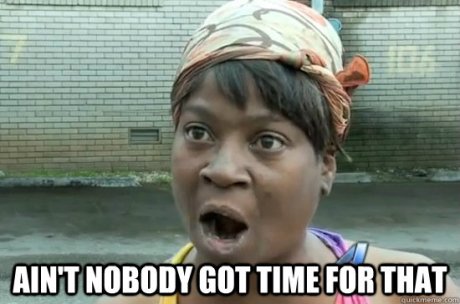
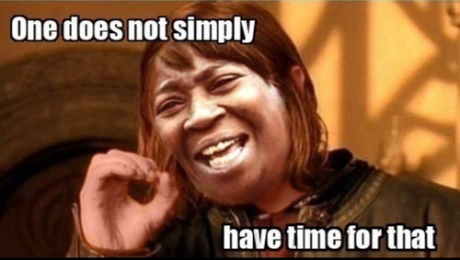
The critical difference between Facebook and Twitter is the relevancy of the News Feed. Normal people actually have some good reasons to use Facebook. Does anyone keep in touch with their real-life friends or family members on Twitter, for instance? 😈
Normal people, which if you’re an author would mean the great majority of potential readers out there, have no real reason at all to use Twitter. Sure, you can “follow” some big celeb, but the odds of their answering any of your Tweets are firmly in the “Lightning/Lotto Jackpot” category.
Twitter’s appeal is laser-targeted to those who crave more exposure. A desire that celebrity worshippers, trolls and ‘unknown’ authors all have in common. The celebrity worshippers at least don’t add to Twitter’s ever-growing-feed problem, typically sticking to reading celebs Tweeting about mundane subjects, and the Tweets from those celebrities’ publicists. The trolls, of course, post vitrolic Tweets here and there, but you can at least be somewhat reassured the trolls care enough about their hate-bombs to post each of their Tweets directly to Twitter ‘by hand’.
Which is more than what you can say for ‘unknown’ authors. Under-exposed authors are the first to reach for Hootsuite, Tweet Jukebox and any other number of “social media managers” to paste as many feeds as possible on Twitter. Some also join Retweet groups, to multiply their posts’ reach through cooperative Re-Tweeting. More coverage sounds good in principle, because Tweets have never had the “feed-shelf-life” of Facebook posts. When the general consensus of ‘experts’ is that Tweets ‘die’ within an hour, it seems logical that posting Tweets every hour or so would increase your odds of connecting with readers.
“Seems.” There’s that word again. When (on Facebook!) one famous author complained about all the drama on her Twitter feed, I commented that my feed was “so full of book ads, I never see any drama.” She kindly suggested I thin the herd a bit, but of course if I did that, I’d lose a few hundred followers.
But would that even manner, anyway? Those same ‘under-exposed’ authors I mentioned before are also the prime target of the “follower sellers.”

Yes, you read it correctly. Someone with 1,071 followers was trying to sell me “10,000 Twitter followers”. Well, if they won’t buy those “10,000 followers” for themselves, why should I? #MarketingFail 😈
Twitter’s failure to even slightly reign in those selling “Twitter followers” is ironically the main reason why no one with any modicum of intelligence places any sort of value on the number of “Twitter followers” anyone has. Anyone can have “10,000 (fake) followers” for less than the cost of a night out.
The reason why “reality shows” like the Kartrashians’ are beginning to crash and burn is because overexposure kills any “mystique” public figures have, and ultimately paints them in the most mundane and boring of ‘colors’.
From the aforementioned Reuters article:
Easy access to stars through social networking websites has made them less appealing and increases the likelihood of followers getting bored, music consumer research by publishers Bauer Media said.
“In this social media age, it’s all too easy to follow your musical icons on a minute-by-minute basis. There’s a consensus within the industry that this ease of access is leading to artists losing appeal more quickly,” the Phoenix IV report said.
The music industry is starting to consider restricting access to certain types of artists in an attempt to boost their staying power in popular culture and lengthen their careers, it added.
We have now achieved the ultimate in irony: The more ‘unknown’ an author is, the more they will over-expose themselves. Adding more and more Tweets to the ever-blurring pace of the Feeds, until it becomes “white noise” that everyone tunes out by instinct, just as Kristen Lamb predicted in her wonderful book “Rise of the Machines: Human Authors in a Digital World“.
These ‘automated authors’ have become the “machines”, or, as Bree Ervin (thinkbannedthoughts) summed it up in her comment here back in 2011, “bots Tweeting to each other”. As I warned here in 2011 and 2012, book ads don’t sell books to each other. When the last human takes the flag with them as they leave Twitter, the dysTweepian future will have arrived. It might even go on without us, posting endless ads to feeds no humans are reading, in hopes of catching the attention of a Retweet bot or two.
Somewhere, the ghost of J.D. Salinger is having a good laugh about all this. 😈
1 August 2015
Categories: Blog Tidbits, Media Reviews . Tags: automated, facebook, social network, tweet, twitter . Author: Daven Anderson . Comments: 2 Comments
Don’t #AskELJames, Don’t Tell
Before I begin my thoughts on #AskELJames, let me tell you a “secret”.
Back in 2010, the first agent who read the first early draft of “Vampire Syndrome” chucked my manuscript aside after reading just the first two sentences, and expressed an opinion similar to this:
Even better, I had paid $50 for the ‘privilege’ of attending her workshop, in which I was promised she would read the first two pages of our manuscripts. My experience cost me $25 for each sentence she read. I myself am of the opinion that if you charge $50 per person admission, you had better damn well read the first two pages from all the attendees. Pay me $50 in cash, and I’ll read two pages of anything, and give you my opinion of it. Dinosaur porn, forklift service manuals, Justin Bieber fanzines; no problem, bring ’em to me. 😉
/rantover ˄
This agent’s workshop ended up being worth far more than $50, for me. Not for her unfinished critique of my work, but for the hard-won advice she gave us about the publishing industry. Specifically, the advice she gave us regarding advances for those authors who were prospects to sign on for Big Five (New York) publishing houses. When my ‘time’ came two years later, and my manuscript was in the hands of New York editors, I knew better than to take two of the deals that were offered to me, and that agent’s advice two years earlier was a contributing factor in my decisions.
Also, when someone thinks you’re “illiterate”, you have nowhere to go but up. Even E.L. James can’t say she ever paid $50 just to get that sort of opinion of her work, so I have her beat there. 😈
Some authors like Anne Rice see “jealousy over James’ success” as being the driving force behind the #AskELJames storm. As in, other authors are jealous of her, just because the Fifty Shades trilogy has made her wealthy.
Let me dispel a few of these notions. I turned down a significant advance from a New York house, and signed with PDMI Publishing (an independent traditional publisher) for no advance a few months later. I was in the position where I could have altered a fundamental precept of my work, for the purposes of financial gain. I chose not to, and instead went with a smaller publisher who respects the integrity of my original creative vision.
And, as much as we’d all love to have the money, would most of us really want to trade places with E.L. James, especially right now? I wouldn’t. Her success has come with a whole freighter ship full of baggage. James’ work, the ‘quality’ thereof, and its subject manner, have long been subject to an unprecedented barrage of harsh criticism in all forms of media, not just this latest frightfest on Twitter.
I didn’t join in the #AskELJames trashfest, because there are things I admire about her. James’ success came from fans connecting with her work in a genuine, non-hype-driven manner. She had sold over 100,000 books on her own as an indie author, which to me is much more impressive than her subsequent sales, which had the benefit of widespread Big Five distribution and an even wider-spread media hype machine.
And, whatever opinions one may hold about her writing and the quality thereof, she is a fellow author. We need to support other authors, not tear them down. The #AskELJames Tweet I posted above reminds me in the most personal fashion that any author is, or can be, subjected to this same merciless bullying. Even the most beloved of authors can be sucked into the trolls’ quicksand trap.
J.K. Rowling vs. Westboro @Twitter
Rowling vs. Political Trolls @Twitter
(Update June 2020: And, sadly, even “the most beloved of authors” can jump their own Twitter shark with time…)
The real driving issue here, which I haven’t seen anyone else discussing, is not a simple “jealousy” of James’ success. It’s the perception that a work of “inferior quality” has become successful, at the expense of unknown “better-quality” works. What no authors seem to be willing to admit is that they are upset that the public is buying James’ books instead of “better” works, and virtually all of the authors who Tweet-bashed her believe their own work to be “better” than James’. So what we really have here, when you dig down to the core of the matter, is that these authors are upset that the public is buying James’ work instead of “better” works, including, but not limited to, these authors’ own works.
One of the “old” rules of publishing is that authors have to put in years of their time refining the quality of their craft, subjecting their writing to the “sharpening tools” of critique groups, beta readers, etc. Then, after all that, an E.L. James comes along and knocks over their apple cart by directly connecting with her readers and bypassing all the old-school “dues” authors assume everyone has to pay, to be a “success”. The logic behind the mass of knee-jerk reactions thus becomes all too apparent.
Myself, I’m confident I made the right choice in refining my writing craft. I paid the old-school dues with the goal of improving my writing, not necessarily to be a “success”. I prioritize quality over the chase of the dollar.
(Update June 2020: Even though I’ve since left the publishing world, which had become a dumpster fire even before the 2020 pandemic, at least if someone stumbles across a print copy of “Vampire Syndrome” in a thrift shop somewhere and tracks me down, at least I can admit I’m the author of it, without having to put a bag over my head. So, even though it failed to connect with the public and I quit publishing, I still prefer this eventual outcome to being E.L. James, who will be forever known as “the rich woman who wrote total garbage”… )
The successes of James, and Stephenie Meyer before her, prove that THE STORY is what connects with the public, not the perceived quality of writing. In today’s post-apple-cart publishing world, what many call “quality writing” may actually hamper your potential for success. Factors such as excess use of descriptions and fifty-cent phrases to “better” your work can act as barriers which will keep busy, time-deprived readers from enjoying your work. Let’s face it, many people are now reading books on their phones. Not to say you have to “dumb down” your work, but you can have quality, good pacing and reasonable brevity in your writing, when you make this your goal. The main point my Vampire Syndrome Saga makes is that wisdom can be expressed perfectly in simple terms, without falling into the common traps of over-analyzing, over-thinking and over-writing.
We can all benefit from following the Golden Rule. “Do unto others, as you would have them do unto you.” The ‘simplest’ of wisdoms are often the most profound.
3 July 2015
Categories: Media Reviews . Tags: #askeljames, author, criticism, E.L. James, twitter . Author: Daven Anderson . Comments: 10 Comments
A Day That Will Live In Infamy
December 7th is a day that will live in infamy…
…so it’s the perfect day for me to go live as @DavenAnderson on Twitter. 😉
7 December 2013
Categories: Blog Tidbits . Tags: @DavenAnderson, author, PDMI, saga, syndrome, twitter, vampire . Author: Daven Anderson . Comments: Leave a comment
The Social Network Kool-Aid Acid Test
Last night, I was perusing posts and comments on a website featuring authors’ essays.
I encountered a reply that I found disturbing, on several levels.
“I don’t see Facebook, Twitter or a friend follow anywhere here. Another reason to close this (website)…”
Not that I have objections to sites that feature such links. Far from it. Such links widen their reach. I had initially chosen not to install Like buttons for Faceplant/Tweezer on my site, knowing full well that I might have missed reaching a few eyeballs for whom Faceplant/Tweezer are “the Internet”. 😈
Back to the reply cited above. The truly disturbing thing about the reply is that it implies that the website (or any other website, really) is “worthless”, worthy of closure, and not worthy of your active participation, simply because “Like” and “Follow” social networking links are not present.
Writers, like me, are inquisitive people. Or at least we should be. We should be perusing the deepest, darkest corners of the Internet for the seeds of original story ideas, much as the writers before us sought out dust-covered tomes hidden in the neglected corners of libraries. Conducting “The Great Search” for gems of “forgotten” insight and wisdom to awaken our creative skills.
Having all of your information spoon-fed to you by the “social network du jour” is the antithesis of “The Great Search”.
Almost all of the web pages I perused in the research of my book did not have “Like” or “Follow” social network links. I researched over three novels+ worth of material using these “invisible”, “worthless”, “should be closed” web pages.
The reply’s casual dismissal of such sites is troubling for two reasons. Either the poster has not bothered to read our authors’ many posts about the craft of writing, or worse the poster has read them and decided that any information they can’t “Like” or “Follow” is irrelevant.
People drinking too much of the social network Kool-Aid love to repeat their mantra, “Facebook has 800 million users.” Guess what? Facebook has already hit its peak. Their new user growth in the U.S. is virtually nil. Everyone who wants to be on Facebook already is. And millions do not.
Update September 2012: Check Faceplant’s stock price progression. Need I say more? 😈
Social networking pages don’t reach the millions of readers who don’t participate in any social networks. Fans of these networks tend to take a myopic view. If it’s not on their chosen network, it “doesn’t matter”. To which I can only reply:
“If you cannot see it, you think it’s not there. It doesn’t work that way.”
Devo, “Peek-A-Boo”, lyrics ©1982 Casale/Mothersbaugh
Remember MySpace and Friendster? Did anyone become a best-selling author simply because they were on either of those networks in 2005? Don’t put all your eggs in one basket, because someone out there is working on the next big “basket” even as we speak.
(and if they go public, cash out fast!) 😈
If the social networks were truly “all that”, private-party websites would not even need to exist. But they do. For that, I am grateful. I can go there and peruse quality websites, dedicated to the craft of writing, without the distractions imposed by social networks.
Cracked: Six things everyone wants to share, nobody wants to read
Reuters: Tweeting celebrities risk boring fans
Cracked – Six Scientific Reasons Why Social Networks Are Bad For Society
Buzz, Balls & Hype – The Writer as Willy Loman
Murder She Writes: Money Can’t Buy Love

Can anyone out there lend me $2400, so I can buy 100,000 Facebook fans? 😛 And they’re even guaranteed to be “Real fans, not Farmville/Mafia Wars players” 😆
26 February 2011
Categories: Blog Tidbits . Tags: distraction, distractions, facebook, FB, friend follow, like, social network, social networks, stock, twitter, website, writer, writing . Author: Daven Anderson . Comments: 2 Comments
Free Short Story
-
^^^^^^^^^^^^^^^^^^^^^^^^^
Recommended eBooks
-
———————————————————
Blogroll
-
———————————————————
Tags
alien anderson author blog blood book books character conspiracy denver dia down down syndrome ebook facebook fiction forks indie interview jack kindle kristen lamb lilith movie music needs nosferatu novel olympics parody PDMI plymouth publisher publishing review romania saga satire self special story syndrome twilight twitter vampire vampires world writer writers writing
Speculative Fiction Author
BY GRACE THROUGH FAITH
A great WordPress.com site
Peeking behind the curtain of Life....
The Matriarch Vampires by Kevin A. Ranson
Food, recipes, stories, poems
A NOMAD ON THE LOOSE
A site devoted to the Young Adult sci-fi/fantasy novel The Eye-Dancers
True Power Plant Stories
-
Subscribe
Subscribed
Already have a WordPress.com account? Log in now.



